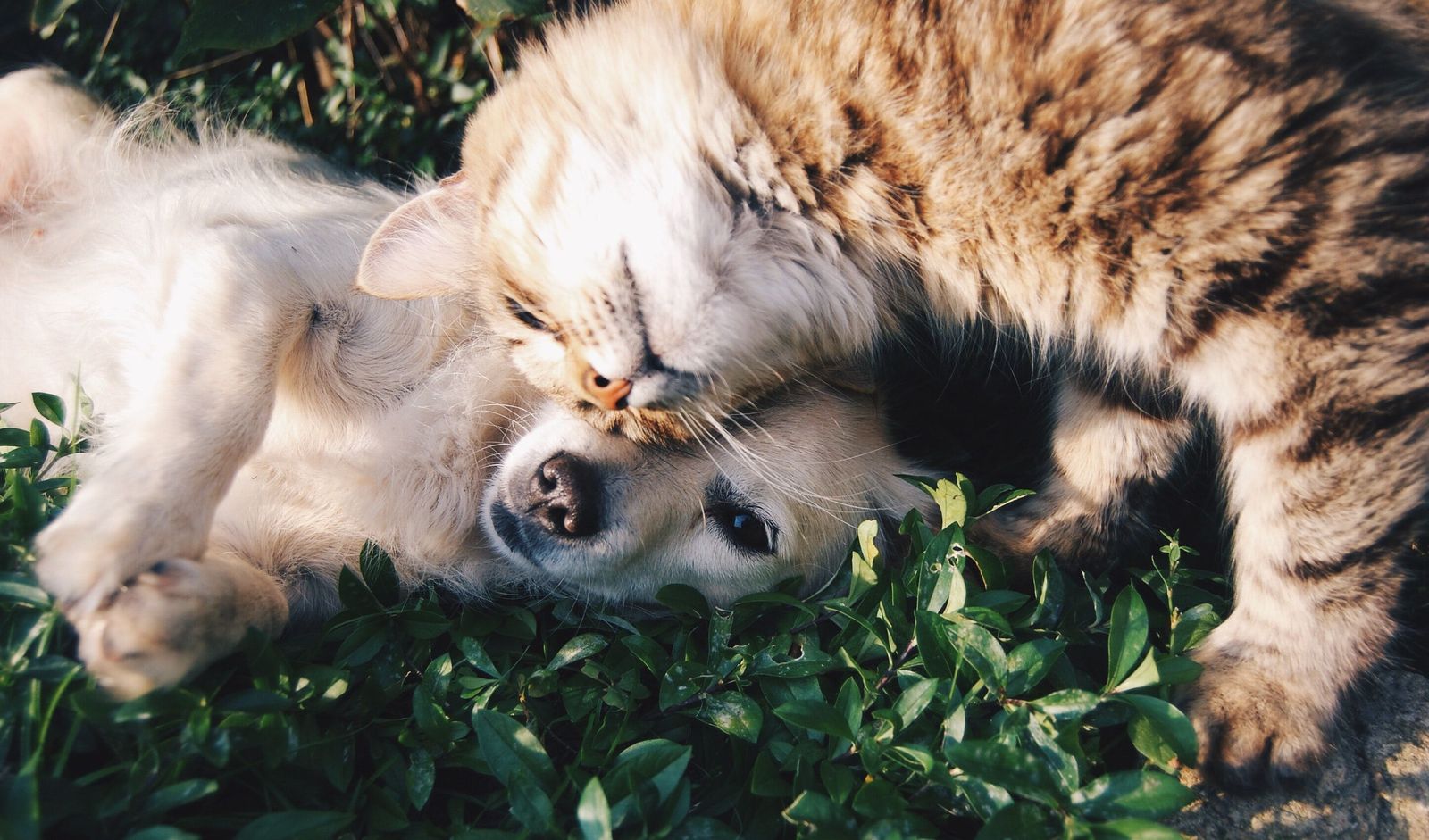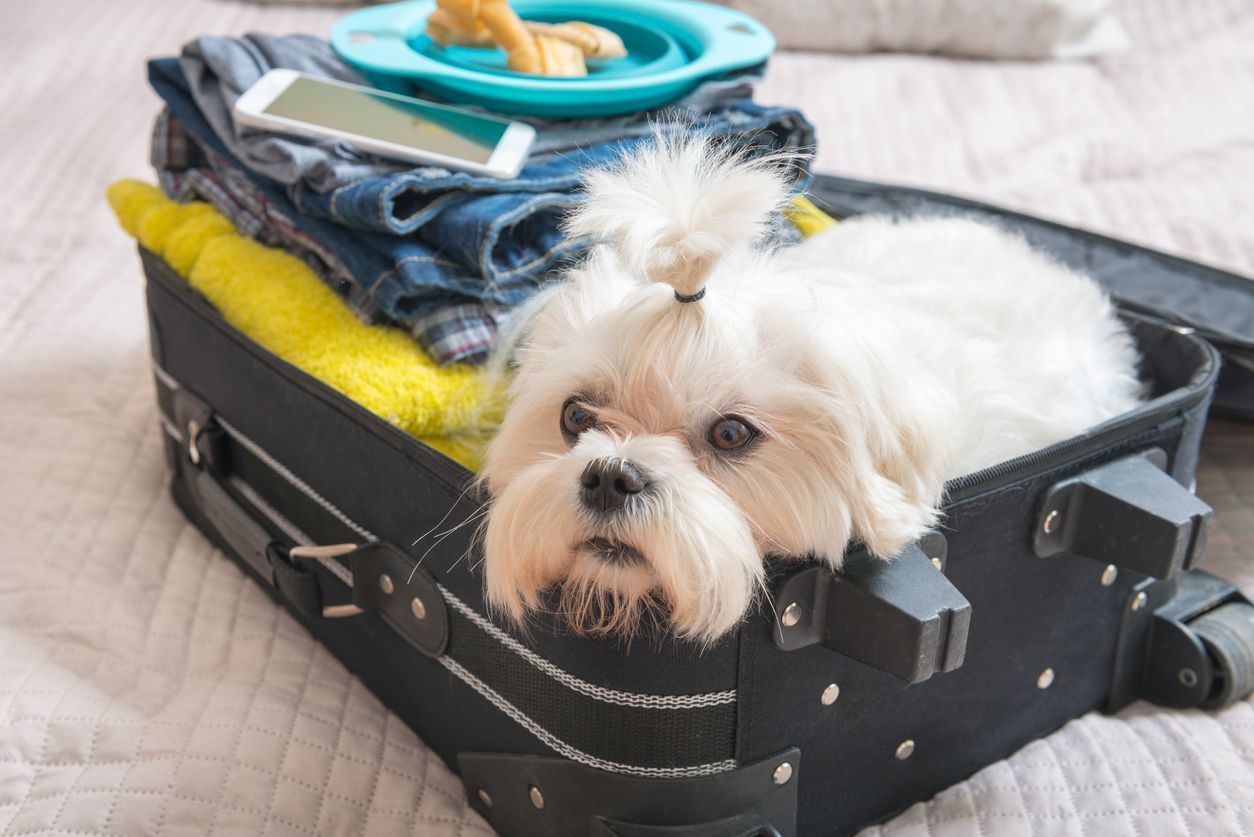Does your pet need a pet of its own?

Every die-hard pet lover probably dreams of the day when they can be in a puppy or kitten pile, just sitting on the floor with a ton of adorable little faces licking yours and playing with toys together. It’s a sweet (and maybe overwhelming) vision, but having more than one pet — an entire pile or not — is a big decision, not just for you but for your pet as well. If you’re thinking about getting another pet to give your own pet a friend to hang out with, here’s what you need to consider.
Can your pet handle another pet?
Think about how your pet acts around other animals. That will be a big clue about whether another pet in the household is right for them. You don’t want to stick a pet that needs a single-animal household into a frustrating situation. Or disrupt an older pet that’s used to ruling the roost.
“Some personalities of dogs and cats tend to do better being alone,” says Vetster veterinarian, Dr. Jennifer Lopez. “[They have different] temperaments and preferences. Some might try to establish dominance, or like to misbehave with other pets around.”
Younger pets tend to be more open to other animals. But some trainers advise against having multiple pets in the household.
“Most trainers don’t recommend that because they tend to bond too much with each other and then it leaves the human out of the equation,” Dr. Lopez says. “They should be separated and really learn to socialize separately.”
That being said, your furry or feathered friend may love having a companion around, and some pets actually do better with them nearby. Guinea pigs, for example, are herd animals and always prefer to have some social time with other guinea pigs.
For cats particularly, they can take or leave another cat. They’re naturally solitary and do fine on their own. But if you plan to get another cat, try to get a littermate from the get-go. They’ll be more likely to get along.
Can YOU handle another pet?
Don’t forget, having another pet in the house means another living creature you need to directly care for. You’ll need to take on feeding them, bathing them, walking them, and playing with them — and that can be a lot.
“Do families with twins think it’s easier?” Dr. Lopez asks. “Probably not.”
You also may struggle to know which pet is sick or doing something wrong, making it more difficult to address the problem. Cats, for example, sometimes pee outside the litterbox or mark their territory, and having another animal in the house may make that worse.
Do you have the money for another pet?
Having pets can be expensive, especially as they get older. And that’s something you’ll really need to consider when deciding if you want to get a pet for your pet. Do you have the money to care for an entirely new animal in the house? A quick exercise to know for sure is to make a list of the expenses for your current pet. Think about things like food, toys, treats, annual checkups, vaccinations, and living spaces and accessories. And, of course, the unexpected costs of emergency health issues. Add it all up and compare it to your household budget — if it’s too much, skip the second pet.
Regardless, some benefits of having multiple pets in the household are unbeatable: more love for you from your furry friends (and more love for them); more play together with your pets, and between your pets, because who hasn’t seen those adorable videos of two dogs playing tug together; and more exercise when you play and walk with your pets, keeping your health in check. Having pets can also beat anxiety, so having more may make it even better. Your pets will keep one another company, too, so separation anxiety when you go to work and boredom when you’re busy may not be as big a deal. And who knows, they may turn out to be BPFs (best pet friends) and spend all their time together cuddling, playing, and generally being adorable and bringing joy to your life.
First things first, though — check your existing pet’s temperament. A Vetster vet should be able to help walk you through the process, and then you can make an informed decision about whether your furry friend needs a furry friend of their own.









